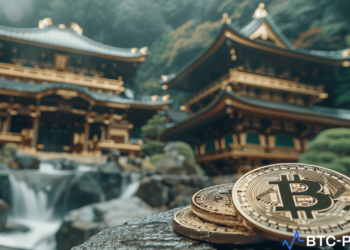Trump-linked World Liberty pursues $1.5b WLFI token vehicle
World Liberty Financial is moving to raise $1.5 billion for a new public company that will hold WLFI tokens, according to Bloomberg. The Trump family-backed platform is targeting cryptocurrency and technology investors for a treasury structure aligned with the growing trend of digital asset holding companies.
Reports suggest the deal is still in development, but discussions with potential backers are advancing quickly.
Part of a growing crypto fundraising wave
World Liberty joins firms expected to raise $79 billion in 2025 for Bitcoin purchases alone. However, analysts warn that the strategy carries higher risks for less liquid tokens like WLFI.
Currently a crypto-lending platform, World Liberty Financial also offers USD1, a dollar-backed stablecoin. The company has faced scrutiny over potential conflicts of interest and its fundraising practices through the WLFI token sale.
WLFI set for market trading
Initially issued as non-transferable governance tokens, WLFI is now preparing to trade on open markets. President Trump is listed as “co-founder emeritus” on the platform’s website.
The Trump family’s crypto involvement also spans mining operations and proposed digital asset ETFs.
USD1 stablecoin fuels engagement
World Liberty has launched a USD1 Points Program to incentivize stablecoin use across partner exchanges. Users can earn rewards by trading USD1 pairs, holding balances, and staking on approved platforms.
The program will expand to include DeFi integrations and mobile app features, with each partner exchange setting its own earning criteria.
Political backdrop and global reach
Trump’s recent signing of stablecoin regulations has provided a clearer legal framework for companies like World Liberty. The $1.5 billion fundraising target underscores growing institutional interest in altcoins beyond Bitcoin.
However, liquidity issues remain a challenge for WLFI. According to the New York Times, World Liberty has benefited from Trump’s official actions and has sold cryptocurrency to overseas investors in regions like Israel and Hong Kong, raising questions about foreign influence.






